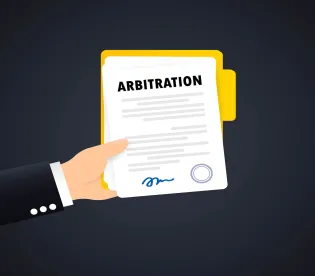What You Need to Know in A Minute or Less
While the mass arbitration tactic has caused much consternation for defendants, the development of new rules and procedures to blunt the force of this tactic has frustrated plaintiffs’ attorneys. Both sides have turned to the courts for relief. However, to date, courts have been reluctant to provide an escape from the mass arbitration trap for defendants—and have refused to second-guess new arbitration procedures designed to address mass arbitration.
Defendants, faced with multimillion-dollar invoices for filing fees from arbitral institutions, have often refused to pay, leading plaintiffs’ attorneys to turn to the courts to compel arbitration and/or the payment of the fees. In some cases, courts have considered successive motions to compel arbitration—first by defendants seeking to avoid a class action, then by plaintiffs seeking to force the payment of mass arbitration fees. Both motions are typically granted.
An Illustrative Example: The Postmates Class Actions
The dispute between Postmates and its couriers is an illustrative example. After putative class actions against Postmates were dismissed in favor of individual arbitration, plaintiffs’ counsel served Postmates with over 10,000 virtually identical arbitration demands, triggering a multimillion-dollar bill from the American Arbitration Association (AAA).
Rather than pay the extortionate amount, Postmates sued the individual couriers, seeking declaratory and injunctive relief. Postmates argued that the mass arbitration claims were effectively the same as filing a class arbitration and, thus, violated the parties’ agreements and the Federal Arbitration Act. The court was unsympathetic, dismissing Postmates’ suit. Shortly after, California enacted a statute1 penalizing companies that refuse to pay arbitration fees by imposing sanctions or even contempt charges. Postmates challenged the law, which was upheld by a district court in 2021.
Defendants' Suits Against Arbitration Providers
Some defendants faced with mass arbitration fees have even sued the AAA, but with little success. For example, Uber, facing US$91 million in fees due, sought to enjoin the AAA from issuing additional invoices. A New York court refused to issue an injunction, and the appellate court affirmed the decision.
Plaintiffs' Response
Plaintiffs, for their part, have turned to courts to attack new mass arbitration procedures (discussed last week), arguing these procedures are unconscionable due to their development in concert with defendants’ attorneys.
In suits involving challenges to the new procedures developed by the International Institute for Conflict Prevention & Resolution (CPR) and New Era ADR, the courts allowed discovery into the development of the mass arbitration procedures. Ultimately, the CPR procedures were approved, with the court noting the procedures do not provide either party with any substantive advantage. The challenge to New Era’s procedures remains pending at the time of publication.
Lessons Learned
In cases of litigation over mass arbitration issues, the courts are unlikely to come to the aid of either party complaining about mass arbitration filings being processed according to the rules of an arbitral institution. Therefore, advance planning is critical to effectively deal with mass arbitrations.
These strategies will be discussed in the final article in our series next week.
FOOTNOTES
1 (Cal. S.B.707, Ch. 870 (2019-20))




 />i
/>i

